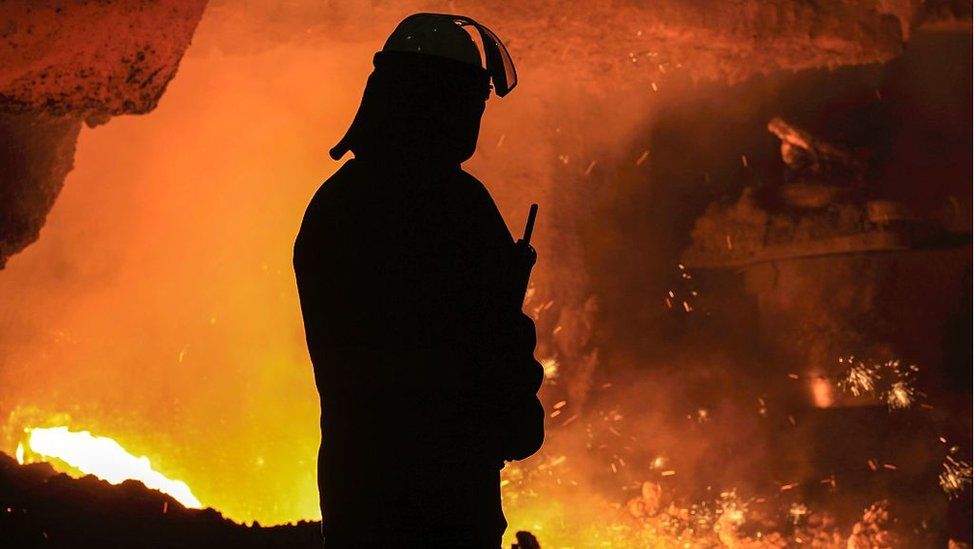The UK steel industry has expressed concern over the possibility of further job losses prior to the start of any government assistance for electricity costs.
British Steel's decision to cut 260 jobs could signal the beginning of a trend in the industry, according to Gareth Stace, director general of UK Steel.
From the start of the following year, the government has plans to lower electricity costs for businesses that use a lot of energy.
For businesses that produce steel, paper, and chemicals, electricity costs have skyrocketed.
The government put forth changes on Thursday that it claimed would align the energy costs incurred by the UK's energy-intensive industries with those of the other major economies in the world.
About 300 companies that produce steel, paper, chemicals, and other metals and employ 400,000 people stand to gain from the changes that would exempt them from paying certain costs and taxes.
The support, according to Business and Trade Secretary Kemi Badenoch, "will ensure that UK industries like steel and chemicals remain competitive on the global stage.".
Steel production costs have increased as a result of the metal's recent price spike and high energy requirements.
However, according to industry body UK Steel, due to additional levies and carbon costs, steel manufacturers in the United Kingdom pay about 60% more for electricity than their counterparts in other nations like Germany.
The proposals from the government, according to Mr. Stace, are "very welcome" and will go a "long way" toward closing the pay-gap between UK steelmakers and those in rival countries in Europe.
He added that it was "particularly concerning" that the proposals would not be put into action right away and would instead be subject to consultation in the spring.
"Just over a year is a long time in steel," he said on the BBC's Today program. "We might see our electricity prices going down in just over a year.".
He expressed concern that investment would decline and more announcements akin to British Steel's might come if there was not a "competitive business environment" in the UK for the steel sector.
Due to "unprecedented" increases in energy costs and calls for businesses to be greener, British Steel announced on Wednesday that it would close its coking ovens in Scunthorpe and lay off up to 260 people.
The biggest steelworkers' union added that British Steel's layoffs could have a "catastrophic impact" on the UK as a whole. Unions said the move was a worrying sign for the health and future of the UK steel industry.
The government recently increased the budget of the Energy Intensive Industries Compensation Scheme and extended it for an additional three years.
The program offers businesses relief from paying some levies included in their electricity bills.







